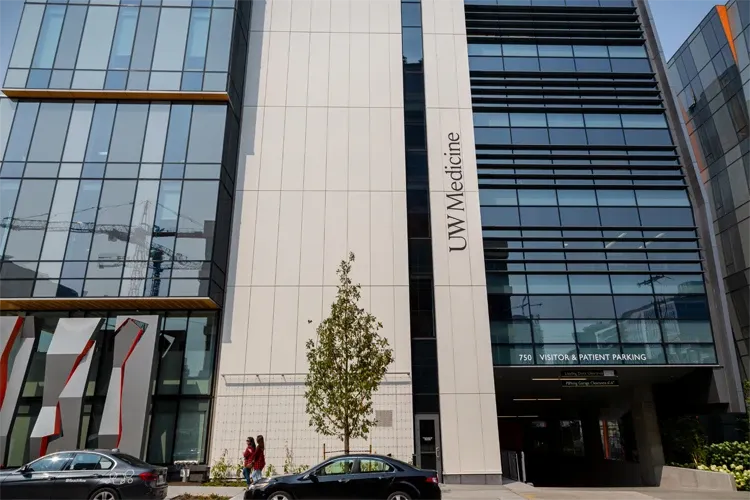After a six-year legal fight, The Center for Medical Progress’ founder and president, journalist David Daleiden, obtained a settlement requiring the release of all data relating to the University of Washington’s use of tissue obtained from aborted babies.
According to the Thomas More Society, the non-profit law firm arguing the case, Dalieden is working to expose illegal activities of the abortion industry, including criminal activity and the use of taxpayer dollars for research using fetal organs harvested from born-alive babies.
The settlement in the Washington case, pre-dated to go into effect December 5, 2022, is the final chapter in a lawsuit filed in federal court on August 3, 2016, to partially block Washington Public Records Act (PRA) requests filed by Daleiden and the Family Policy Institute of Washington.
According to The Center for Medical Progress’ press release, the public records requests sought data from the University of Washington’s Birth Defects Research Center relating to the use, acquisition, and sale of fetal tissue and organs and the University’s relationship with Planned Parenthood, as well as any involvement of the federal National Institutes of Health (NIH) in UW’s fetal experimentation programs.
…Dalieden is working to expose illegal activities of the abortion industry, including criminal activity and the use of taxpayer dollars for research using fetal organs harvested from born-alive babies.
The lawsuit was brought by a group of anonymous abortion and fetal tissue workers, according to the Thomas More Society, which represents Daleiden. In a 2016 op-ed published in The Hill, Daleiden called the lawsuit “frivolous,” asserting that it was an effort by Planned Parenthood and its allies to block the release of the data.
“The [Birth Defects Research Lab] is both independently controversial and a critical benchmark for the rest of the baby parts harvesting industry, and Planned Parenthood has frequently pointed to their relationship with BDRL as a model that absolves them from any guilt. Planned Parenthood should welcome the release of these public records–and yet they and their allies are again storming into court to suppress the evidence,” the op-ed states.
The plaintiffs claimed Daleiden sought personally identifying data and contact information which could put them and their families at risk, but the settlement notes that Daleiden “[did] not seek the personal contact information of any individuals – including direct work phone numbers, work e-mails, personal addresses, and personal cell phone numbers” and had requested that any such information be redacted.
The settlement awards Daleiden $30,000 in attorneys’ fees, as well as extensive documents spanning 12 years of operations of UW’s aborted fetal research programs.
“There’s no ‘abortion exception’ to our nation’s public records laws, and the People have a right to know how their government is run”
— Thomas More Society Vice President and Senior Counsel Peter Breen
Specifically, the university must produce the following records:
- All documents and agreements between the UW School of Medicine or UW Medicine and any abortion providers that supplied UW with fetal tissue;
- University documents and communications relating to the acquisition and use of aborted fetal tissue and organs, research using aborted fetal tissue, and exemptions granted by the University of Washington Institutional Review Board for any applications or submissions using aborted fetal tissue;
- All documents and communications with five named individuals regarding aborted fetal tissue;
- Evidence of payments associated with any of the above;
- Written protocols for the isolation or dissection of specific organs and tissues obtained from induced abortion;
- All written records of fetal tissue specimens obtained by the University BDRL from 2010 to November 18, 2022;
- All communications and documents between Cedar River Clinics and UW entities relating to the “clinic services” provided by Cedar River Clinics to the University of Washington, specifically including contracts and invoices; and
- Grant applications, progress reports, final reports, and other correspondences between the UW and the National Institutes of Health related to human fetal tissue research at the University.
“Public entities’ good faith compliance with public records laws is crucial to promoting public trust, holding bad actors accountable under the law, and safeguarding democratic values,” Daleiden said in response to the settlement agreement.
Daleiden continued:
State actors’ transparency and accountability under freedom of information laws is even more important in the realm of government-sponsored experiments on aborted human fetuses, where laws against infanticide and organ trafficking, the systemic exploitation of the vulnerable, and the irreversible life-or-death abortion decisions of new families are at stake. The Center for Medical Progress will continue to monitor and report on these issues to educate the public and advocate for more just and humane abortion and research policies.
“There’s no ‘abortion exception’ to our nation’s public records laws, and the People have a right to know how their government is run,” noted Thomas More Society Vice President and Senior Counsel Peter Breen.
Said Breen:
We are pleased at the successful resolution of this lawsuit by settlement. That settlement secured attorney’s fees from the UW and nearly everything that David Daleiden was seeking from the UW: thousands of pages of new documents on the buying and selling of aborted fetal tissue trafficking, including job titles and all non-personal information. These are public records of a taxpayer-funded program, and this settlement secures Mr. Daleiden’s rights to the documents he needs as a citizen journalist.



